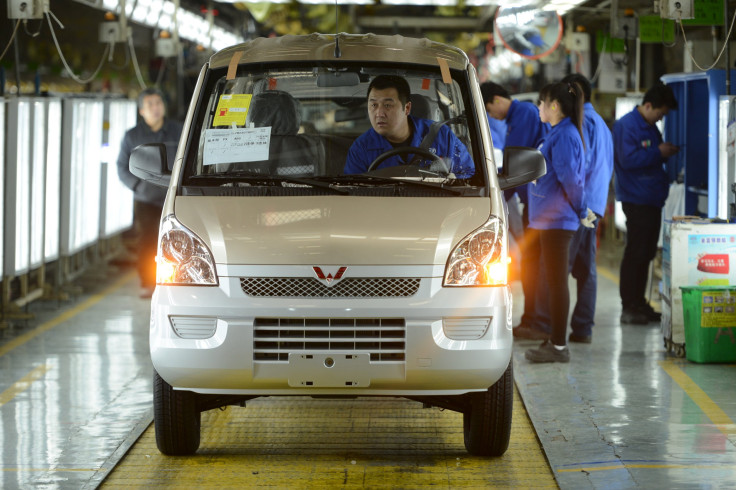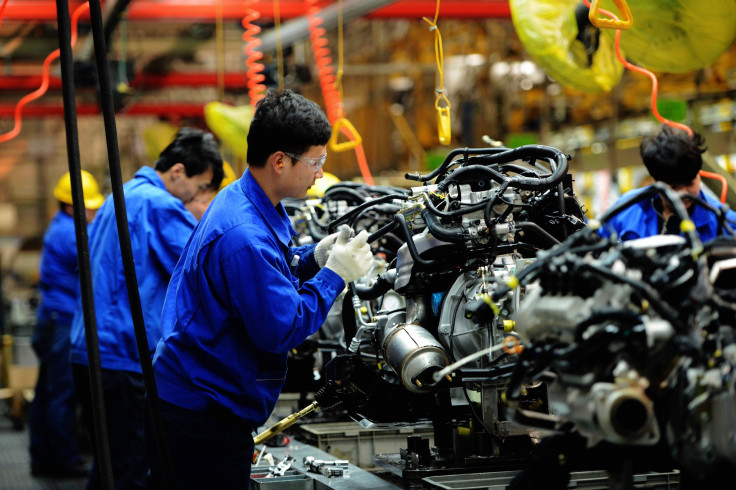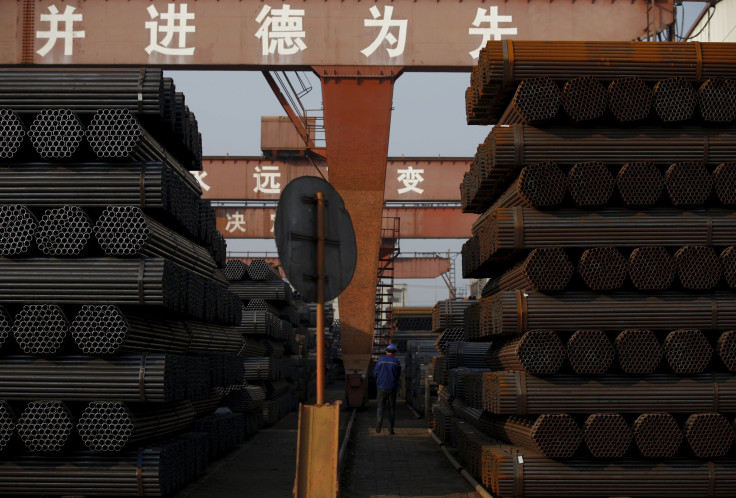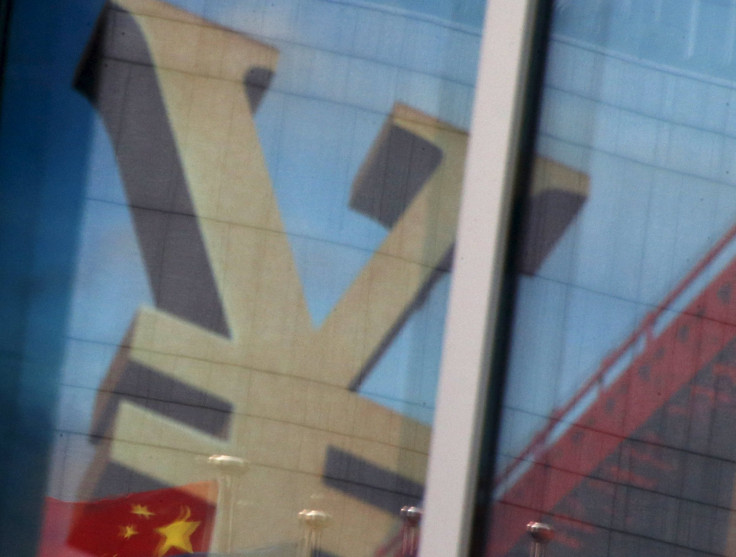‘No Contradiction’ Between China Hitting Growth Targets And Deepening Reform, Premier Li Says

SHANGHAI — China’s Premier Li Keqiang says it’s "impossible" for the country not to reach its growth target for this year of between 6.5 and 7 percent — and there is “no contradiction” between maintaining growth and deepening structural reforms of China’s economy. He also said delayed plans for a link between the stock markets in Hong Kong and Shenzhen could be implemented this year.
In his annual news conference at the close of China’s legislative session, which approved the country’s new economic plan, Li gave an apparently confident performance, which seemed designed to reassure foreign investors who have been concerned at the nation’s slowing growth rate, stock market volatility and sudden devaluation of its currency last year. Some have also expressed concern that market-oriented reforms are being put on hold as President Xi Jinping pushes a return to more traditional socialist ideology.
With only six questions from international media during the two-hour conference, and questions from domestic media avoiding the most sensitive topics, Li did not have to touch on the fate of the Chinese yuan — still the subject of speculation about further devaluation. But he said China had “passed the stress test and gained good experience” in achieving growth of 6.9 percent last year — in line with a target of “around 7 percent” but the nation’s slowest since 1990. And he insisted there would be “no hard landing” for China’s economy.

With China’s trade continuing to slump in the first two months of this year, Li admitted there were challenges in the global economy leading to “downward pressure,” and acknowledged the challenges for China’s heavy industry and petro-chemical sectors, which have been hard hit by the global slowdown. But he said an expanding service sector, which grew by 8.1 percent last month, and plentiful policy instruments in reserve meant that reducing overcapacity in such areas of the economy could be achieved without creating major unemployment.
Brushing aside doubts that the slowing economy has reduced the government's commitment to painful reform of state enterprises that dominate these sectors of the economy, Li emphasized that the authorities had ridden out instability over the past year without “using massive stimulus,” as after the 2008 financial crisis, and had chosen the “harder path of structural reform.”
He reiterated plans to reform the coal and steel industries, which the government has said could lead to 1.8 million job losses in the coming years. Li said re-employment would be a priority and the government could “cover layoffs” — he repeated a pledge to provide 100 billion yuan (around $15.4 billion) in funds this year to take the pain out of the process, and said this amount “could be increased if needed.”

And he said that despite the challenges for some sectors, there were “more hopes than difficulties” due to "underlying trends," including the rise of new economy, from internet companies to smart manufacturing, and new agricultural cooperatives. Li, who has repeatedly called for more links between the internet and the traditional economy, said China would seek to promote mass entrepreneurship and make use of crowdfunding.
“If we bring all the people’s enthusiasm and creativity together we can build momentum to withstand downward pressure on the economy,” he said.
He also pledged to press ahead with financial reforms, which observers say have been hit by recent volatility on China’s stock markets, which fell some 40 percent from their peak last summer after more than doubling in the previous year. The government has since cracked down on new financial products, and Li said recent events showed that “we still need to improve our regulatory system” and coordination. But he said the government was "working" to implement the delayed trading link between the stock markets in Hong Kong and the Chinese city of Shenzhen "within this year," with “intensive consultations” currently underway between the two sides.
Li also said the government had “innovative macro adjustment tools” that it could deploy if economy risked “sliding outside an appropriate range,” and he stressed that China had sufficient funds to manage nonperforming loans, which have increased in recent months. And while acknowledging that some local governments were facing “hard problems” with paying pensions as revenues fell, he said the government could back them up if necessary and overall there was "no problem" in making sure pensioners received their payments, adding that the nation had 1.6 trillion yuan ($246 billion) in strategic social security fund reserves.
But Li acknowledged that his campaign to make China's government more efficient has faced challenges. He said it was still too hard for businesses to get permits, and "redundant procedures" had “held back productivity and affected consumer demand.” He said the government should do a better job to ensure a level-playing field — and in a reminder of concerns that the leadership’s tough anti-corruption campaign has left many officials unwilling to take action, he called on them to “do their jobs conscientiously, otherwise they will be held accountable.”

Li, who is seen as relatively reform-minded on economic and administrative issues, also said more effort should be made to cut government power and avoid "arbitrary use" of such power, and suggested that openness of government information should be “standard practice.” He also called for more scrutiny of government power “to prevent abuses” and increase efficiency, and said he welcomed media and public to participate in such scrutiny.
Observers noted, however, that such comments appeared to be in contrast to recent calls by Xi for the media to loyally follow the Communist Party’s line — and also seemed to contradict the government's recent crackdown on civil society activism, particularly criticism of official policy by lawyers and NGOs. Such apparent divergence may reinforce speculation that Premier Li — who also downplayed tensions with the U.S. and neighboring countries over issues like the South China Sea — does not have as much influence as the powerful president when it comes to making policy, and may therefore lead to continuing doubts about how deeply the government will enforce reforms.
International investors have noted that bold pro-market reforms, announced in 2013, have yet to be fully implemented, as Xi has strengthened his grip on areas of economic and social policy. Some have also expressed worries that the need to stimulate the slowing economy — with the government announcing plans to raise China's budget deficit-to-GDP ratio to 3 percent this year, from 2.4 percent last year — might lead to further delays, particularly in state enterprise reform and opening of protected market sectors to foreign investors.
So while Li Keqiang said that a successful start to China’s new five-year economic and social plan — also unveiled at the legislative session — would be a “warm breeze” that China would bring to the world, the leadership is likely to face tough scrutiny from the international business community to see if it can meet its commitments.
© Copyright IBTimes 2025. All rights reserved.





















